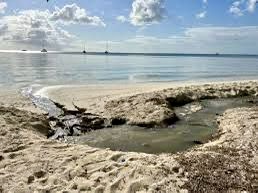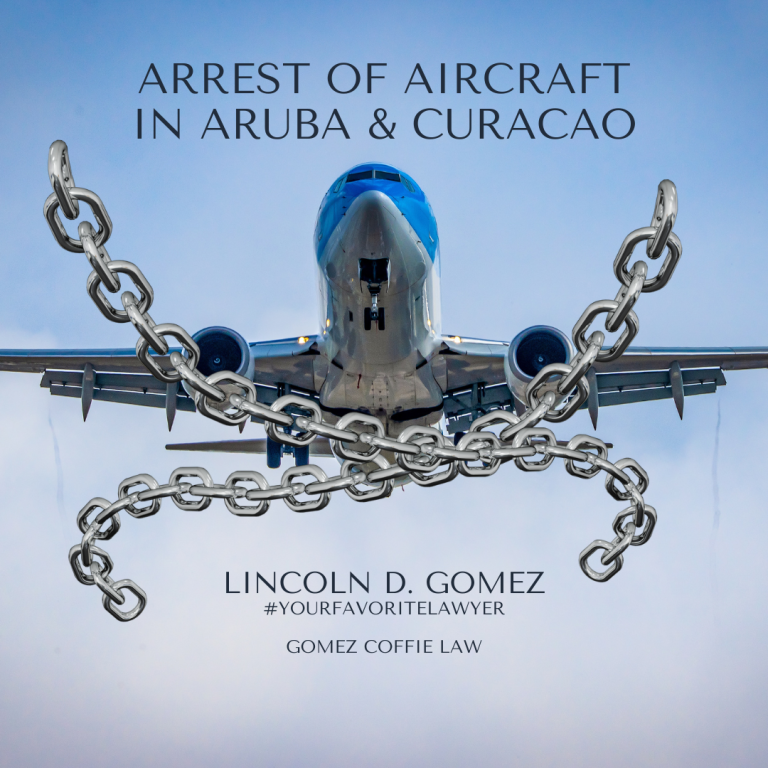Pooping Soon Will Cost a Few Dollars: Pay to “Go”
In “Dushi” Aruba, our beloved island, we grapple with a not-so-fragrant issue: sewage treatment. For decades, our government has failed to give this matter proper attention. I have written about this issue several times and covered court cases the government has lost because of poor management and leadership. If you have read my previous four articles on this subject, you are fairly up to speed; if you have not, just keep reading, and I will refer to the relevant links.
In this contribution, I will discuss how today, nobody is being charged to do a “Number 2” but soon that may change. The question that will need to be answered is: who is going to pay for the pooping? We or them?
Silver jubilee
One of my readers shared a fax sent to the government in 2000 asking to stop sewage discharge onto the beach across the Bubali plas. Before that, around 1998, a similar request was sent. So last year, the community “celebrated” the silver jubilee of this stinking issue. Twenty-six years later, the problem still hasn’t been solved, and the amount of discharges today is far more than in 1998. Much of our sewage junk originates in the western part of our island, where our hotels are located and our tourism thrives, but this is not only a hotel issue. We all contribute to the sewage pond in one way or another. After all, we all have to go sometimes, and if your bowel movements are healthy, you will go more frequently.
The way to solve the stinking issue is to find the right technical solution and pay to acquire it and implement it. For that, we need money.
Tax it
Ask our government to find money, and they will go and find a tax to cover this. The government announced a sewage treatment and management levy, specifically for the RWZI at Bubali Plas. This levy, US$ 35, will be charged upon arrival at the airport. On social media, residents were quick to express outrage at the idea of having to pay the US$ 35 when coming back from vacation or a business trip. The government clarified the levy would not be targeted at the locals and that from the levy, US$ 20 would go to fund the RWZI. Last year, the airport had about 1.2 million passengers. At $20 per head, that would mean $ 24 million in revenue annually. That is a lot of cash to go to CAPEX and OPEX! I would love to see the business plan to understand how this money will be spent, especially if it will be spent and, if so if it will be spent wisely. I am no expert, but it would not surprise me that our Dutch friends referenced in my previous article, “Aruba’s Sewage Crisis: The Dutch Way Forward” Part III could do it for less.
As a careful reader, you may wonder where the other $15 is going if, from the $35, only $20 is going towards the sewage plant. Wonder no more; the difference is allocated to the “privatization” of the Department of Civil Aviation. I love aviation, so I think this is great, but I still don’t see the relation between aviation and treating fecal matter. I can see a rather convenient way to pay for a “privatization” or pay for something when the budget falls short. In our case, the budget didn’t happen to fall short; it has been short over the years because our government’s friends from across both aisles share this nasty habit of spending money they don’t have and giving out government jobs to the loyalists like they are giving away candy on Halloween night. At this rate, soon, the government will come up with a levy for breathing fresh air and will not take one step towards cutting costs and reducing the payroll.
The Legal Labyrinth
In addressing the proposed tourist-targeted fee, I must express my concerns about its legal and practical implications. While avoiding overburdening residents is understandable, excluding locals from this fee raises some legal questions, particularly regarding its enforceability against other Dutch nationals. This approach risks creating legal disparities and could trigger complex international treaty obligations, particularly those under the Friendship Treaty between the USA and the Dutch Kingdom. This treaty’s principles necessitate US citizens to be granted the same privileges as Dutch nationals. they, too, are exempted; the revenue model that is the foundation of the ‘privatization’ plan risks collapsing, potentially wiping out a substantial portion of its projected revenue.
The draft law for this tax or fee is private. So, yours honestly can’t review nor dissect it. Still, it will be curious to see if the State Council (Raad van Advies) remarks about excluding the locals from this tax or fee and the consequences. If I am right, then the tax or levy would also have to include locals, which in turn becomes a political issue for the government, which could lead the politicians to fall back and drop the plan to keep the voters happy.
Or there is precedent for levying on tourists only while giving the residents a freebie. This would be great for us locals, but perhaps somehow, it will eventually rub our tourists the wrong way because they could feel that they have to pay for us to go do our “BM” (bowel movement). This elasticity will undoubtedly be researched by our friends at the Aruba Tourism Authority (ATA) and the AHATA.
The latter might see it as a plus because it removes the hotels from being a user and is subject to the current law that regulates sewage fees that, as far as I know, hasn’t been implemented in years. It is funny how the government has a sewage problem and no money to fix it, yet it has a law to charge users but fails to implement it on the books, exasperating the sewage problem.
Convenient tax or levy
Another issue I can’t agree with is the government’s apparent policy or habit of implementing a new levy whenever it can’t afford to pay for something from the budgeted funds. The island is in so much debt at very high interest rates, carries a payroll it can’t support, and has little to no room for investments. We already taxing, levying or charging the tourists with: (i) at the airport for passengers traveling to the USA – tourists and residents – US$ 56; (ii) a tourist levy of 12.5% based on the gross turnover, which is the room rate including surcharges, paid by the guests; (iii) an environmental levy of US$ 3 per occupied hotel room; (iv) car rental companies pay a special tax of about US$ 200 per year per vehicle or motorcycle. Locals are paying for garbage pick-up and disposal via another “privatization model”, the sui generis Serlimar
Governance and Efficiency: The Risk of Nepotism
I’ve previously expressed skepticism about the effectiveness of shifting RWZI’s management to a government-owned corporation. Serlimar’s latest exit from bankruptcy protection ought to give us a good sense of how well the government is at running enterprises. The government should limit its spending and match this with the funds it generates from direct and indirect taxes and not use ad hoc levies every time it has to comply with basic obligations like taking care of sewage.
Besides this, this so-called “privatization of Bubali Plas” will likely lead to even more nepotism and inefficiency. Because in government terms, someone “worthy of our trust” a.k.a a loyalist, needs to be appointed CEO of the privatized Bubali Plas along with “others worthy of our trust”. Qualifications and experience are too often secondary.
Conclusion: A Call for Pragmatic Solutions
We need to reflect. Do it in a quiet place. Do It while it is still free. Reflecting on the need for a smart business case, as I have advocated in the past, we must explore sustainable and equitable alternatives to the proposed funding model or at least question the viability of the proposed model. Beggars can’t be choosers, considering the lack of funds available for public investments, the critical condition of the Bubali Plas, the risk to our tourism, and last but not least, the various court orders against the government, we may have no choice but to have this levy implemented regardless of the cost. The need to resolve the RWZI issue is undeniable. We must seek a financially prudent, socially responsible solution that aligns with Aruba’s tourism-based economy. This echoes the sentiment I have consistently held in my previous articles.
Previous articles
“One Stinky Island” Part I
“Stinky, Stinky, and Now Costly Sewage” Part II
“Aruba’s Sewage Crisis: The Dutch Way Forward” Part III
“Stinky, Stinky, and Now Costly Sewage” Part IV.













